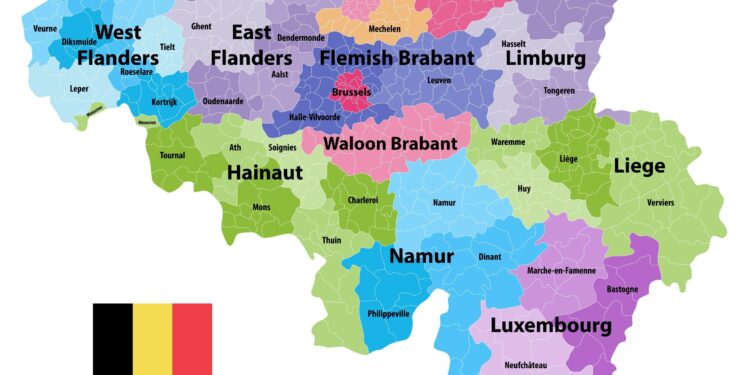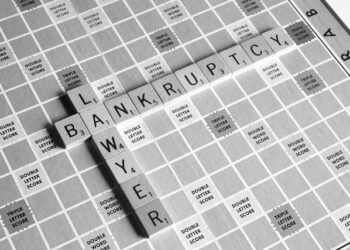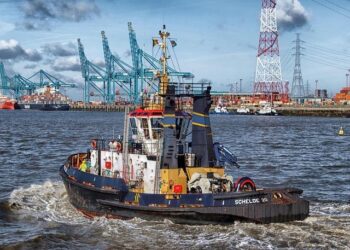Belgium, often celebrated for its rich history, renowned chocolates, and role as the heart of the European Union, is grappling with a series of complex challenges that belie its small geographical size. From deep-seated political divisions and linguistic tensions to socio-economic disparities and escalating urban issues, the nation faces problems that threaten its social cohesion and stability. This article delves into the multifaceted difficulties Belgium encounters today, exploring how these issues impact its citizens and position on the global stage.
Belgium’s Complex Political Landscape Fuels Governance Challenges
Belgium’s political fabric is a labyrinth woven from linguistic divides, regional autonomy, and shifting alliances. The country’s federal system grants significant power to its three regions-Flanders, Wallonia, and Brussels-each with distinct identities and political priorities. This fragmentation is compounded by language-based political parties that struggle to forge consensus, often leading to prolonged government formations and legislative deadlocks. The tension between Dutch-speaking Flanders and French-speaking Wallonia remains a core challenge, making national unity a delicate balancing act.
The complexities manifest not only in political negotiations but also in governance outcomes, with public policy frequently stalled or diluted. Key areas affected include:
- Economic reforms: Disparate regional priorities hinder cohesive strategies.
- Healthcare administration: Variations in regional competencies create inconsistent service delivery.
- Infrastructure projects: Coordination difficulties slow down critical investments.
| Region | Primary Language | Population (Millions) | Key Political Party |
|---|---|---|---|
| Flanders | Dutch | 6.6 | N-VA (New Flemish Alliance) |
| Wallonia | French | 3.6 | PS (Socialist Party) |
| Brussels | Bilingual (French/Dutch) | 1.2 | DĂ©FI (Democratic Federalist Independent) |
Economic Inequality and Social Divides Threaten National Unity
Belgium’s deeply rooted economic disparities have long fueled tensions among its diverse communities, exacerbating social divides that challenge the country’s fabric. The wealth gap between affluent urban centers like Brussels and Flanders contrasts sharply with less prosperous regions such as Wallonia, creating palpable inequalities in education, employment, and access to public services. These economic imbalances do not just affect individual livelihoods; they undermine trust in institutions and complicate efforts towards cohesive policy-making, threatening the fragile equilibrium that holds the nation together.
Social fragmentation is further intensified by cultural and linguistic differences, as well as divergent political priorities. The following table illustrates some key indicators reflecting the uneven distribution of wealth and opportunity across Belgium’s regions:
| Region | Unemployment Rate (%) | Average Household Income (€) | Higher Education Attainment (%) |
|---|---|---|---|
| Flanders | 5.2 | 38,000 | 52 |
| Wallonia | 10.8 | 29,500 | 34 |
| Brussels-Capital | 17.5 | 32,000 | 48 |
Addressing these challenges requires urgent, coordinated strategies that bridge economic divides and foster inclusive growth. Without bold reforms targeting education equity, regional development, and social integration, Belgium risks further entrenching the divides that threaten to unravel its national unity.
Urgent Policy Reforms Needed to Address Infrastructure and Climate Issues
Belgium’s persistent challenges in infrastructure and climate resilience have reached a critical tipping point, demanding swift government intervention and policy innovation. The aging transport networks, plagued by frequent delays and capacity issues, not only hamper economic growth but also exacerbate environmental concerns through increased emissions. With Brussels positioned as a major EU hub, the urgency to revamp urban mobility and reduce carbon footprints has never been greater. Experts emphasize the importance of integrating sustainable solutions-such as expanded electric public transit and revitalized green spaces-to ease congestion and combat pollution simultaneously.
Key areas requiring immediate action include:
- Modernizing rail and road infrastructure with smart, eco-friendly technologies
- Establishing stricter regulations on industrial emissions
- Incentivizing renewable energy adoption across urban and rural settings
- Investing in flood prevention systems amid increasing climate volatility
| Issue | Current Status | Proposed Reform |
|---|---|---|
| Transport Capacity | Overloaded rail lines, frequent delays | Expand electrified networks, optimize scheduling |
| Air Quality | High pollution levels in urban areas | Low-emission zones, increased green infrastructure |
| Flood Management | Inadequate defenses in vulnerable regions | Upgrade levees, natural water retention measures |
The Conclusion
As Belgium continues to navigate its complex political landscape, economic challenges, and social tensions, the nation’s ability to reconcile its internal divisions remains crucial. While small in size, Belgium’s struggles highlight broader issues facing many modern democracies. The coming years will test not only the resilience of Belgian institutions but also the unity of its people as they confront these pressing challenges head-on.
















